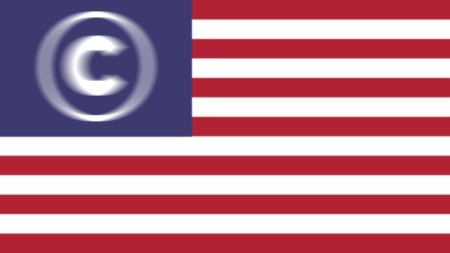Hacker Bunny sues US government
The interests of the hacker are represented by the Electronic Frontier Foundation.

On July 21, 2016, the Electronic Frontier Foundation (EFF), on behalf of computer researcher and hacker Andrew Huang , known in the community under the nickname bunnie , filed a lawsuit against the government of the United States of America . EFF represents the interests of hardware developers, engineers, and inventors and demands that the onerous provisions of copyright law that violate the First Amendment to the US Constitution be repealed.
We are talking about certain provisions of the Digital Millennium Copyright Act (“On the Millennium Copyright Law”, DMCA) contained in Section 1201. They prohibit “circumvention of technical measures that effectively protect copyright”, and prohibit the production, sale or other commercial use of devices or devices primarily designed to circumvent effective technical measures of copyright protection.
The ban refers to the reverse development of computer code, even within fair use in the event that it is embedded in legally acquired equipment.
')
Initially, the DMCA law was taken to combat musical and cinematic piracy, but its consequences turned out to be much more serious than could have been supposed. Section 1201 has been reused by copyright holders to limit access, use, and even the ability to speak freely about copyrighted material. And this applies to programs that are now universally embedded in household appliances for everyday use.
The law imposes legal restrictions on ownership, namely, the right to disassemble and repair a privately owned device, the right to convert videos and music for playing on various platforms, remixes, and also prohibits independent researchers from studying software code to search for dangerous vulnerabilities in cars, computers and medical devices.
It was assumed that laws on the protection of intellectual property will exist in harmony with the Constitution, but in practice they are in contradiction with it, the Electronic Frontier Foundation believes. The DMCA law threatens prosecution or criminal penalties, and therefore threatens the freedom of creativity of authors, scientists, inventors and researchers. Therefore, the Electronic Frontier Foundation believes that the DMCA violates the First Amendment to the US Constitution , which prohibits infringement on freedom of speech and freedom of expression.
“The creative process is based on the use of previous works, and the First Amendment retains our right to change creative works for the transmission of a new message, for research and discussion of computer code that so much controls in the modern world,” explains electronic frontier attorney Foundation Kit Walsh . “Section 1201 threatens ordinary people with financial spending or even imprisonment for exercising these freedoms, and this cannot be tolerated.”
EFF represents the interests of Andrew Huang and his company Alphamax LLC, which develops devices for editing digital video streams. These devices allow you to work with paid video content, including making creative remixes. But the use or sale of such devices is contrary to section 1201 of the DMCA law.
EFF also represents the interests of another plaintiff, Matthew Green , a well-known information security specialist who is developing the reverse development of various devices, including medical devices, and wants to be sure that he will not fall victim to prosecution by manufacturers. It must be emphasized that the work of Matthew Green is of public importance, because he finds bugs, including vulnerabilities with remote code execution in devices such as pacemakers. The presence of these bugs directly threaten the lives of people, and the DMCA law hinders research.
The hacker Bunny himself explained his personal attitude to the DMCA law on his blog by publishing the article “ Why I sued the US government .” He writes that before the adoption of the DMCA, the rights of people were protected by the Constitution: we could easily record TV shows on a VCR or remix songs, disassemble and dig into gadgets as we like. Now everything is wrong. To understand the gadget, you need to decrypt its firmware. To make a remix video, you need to crack HDCP . That is, the DMCA puts real barriers. If earlier we could safely deal with such matters, now we stop and ask ourselves: does this violate section 1201?
“The act of creativity has ceased to be spontaneous,” writes Andrew Huang, and this is the key phrase of the statement of claim. If the court comes to the same opinion, it means that section 1201 contradicts the First Amendment to the US Constitution, based on previous precedents.
“ Our latest generation of makers, hackers and entrepreneurs have grown in the shadow of section 1201. As a parable about a frog in a well that sees a small piece of sky, creativity is limited to a small area. That frog does not suspect how big and blue the sky can be if you take only one step away from the well , ”writes hacker Bunny. - Ecosystems that arise outside the US without restrictions 1201, show how far behind will be the next generation of Americans, if the status quo continues.
Our children deserve the best.
I can no longer remain a passive observer in this situation. I was born in a world free from the limitations of 1201, and our future generations deserve the same freedom of thought and expression. I am no more than one musical instrument in a large orchestra playing the symphony of our freedom, but I hope that my little party will be able to remind us that there were times, there was a world free of these artificial barriers, and that creativity and self-expression go hand in hand with the ability to spread information without fear. "
The lawsuit on behalf of the claimant was filed in Washington District District of Washington (DC) by lawyers Brian Willen, Stephen Gikow and Lauren Gallo White of the law firm Wilson Sonsini Goodrich & Rosati.
Source: https://habr.com/ru/post/396211/
All Articles